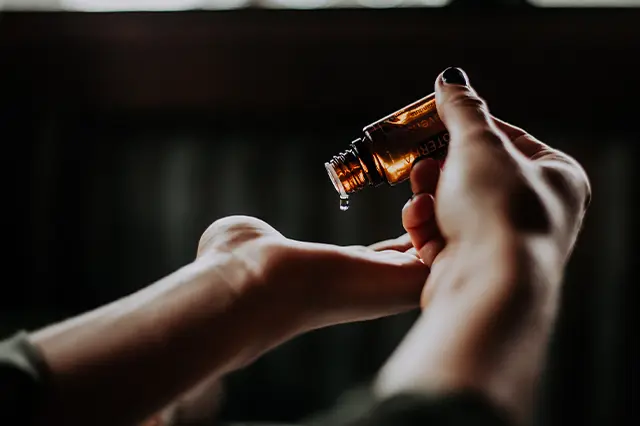
Bed Bugs and Mental Health: The Psychological Effects of Living with an Infestation
Bed bugs are a nuisance, to say the least. Not only do they cause physical discomfort and anxiety, but they can also have longer-term psychological effects on people who live with an infestation. For many people, the idea of having bed bugs in their homes is terrifying and can have a serious impact on mental health. From increased stress levels to feelings of shame and embarrassment, bed bug infestations can take a toll on our well-being. In this blog post, we’ll explore the psychological effects of living with a bed bug infestation and how you can better protect your mental health during this difficult time.
The Prevalence of Bed Bugs in the United States
The prevalence of bed bugs in the United States is on the rise. In recent years, there has been a resurgence of bed bug infestations in homes and businesses across the country. This pests are not just a nuisance, but can also have a significant impact on your mental health.
Living with an infestation of bed bugs can be extremely stressful. The constant bites, fear of them spreading to your furniture and clothing, and difficulty sleeping can all take a toll on your mental health. If you suspect you have bed bugs, it’s important to seek professional help right away to get rid of them and prevent them from coming back.
The Negative Psychological Effects of Bed Bugs
Bed bugs are a nightmare for anyone who has to deal with them. Not only are they painful and itchy, but they can also cause a range of psychological problems.
People who have bed bugs often suffer from anxiety, insomnia, and depression. The constant worry about being bitten and the fear of an infestation taking over their home can be overwhelming. And dealing with the bites themselves can be extremely distressing.
Bed bugs can also have a negative impact on social relationships. People who have them may feel embarrassed and humiliated, which can lead to isolation and anxiety.
If you’re dealing with bed bugs, it’s important to seek help from a professional. They can help you get rid of the infestation and provide support to deal with the psychological effects.
How do bedbugs affect mental health?
Bedbugs are small, reddish-brown insects that feed on the blood of humans and animals. They are often found in mattresses, bedding, and furniture. Bedbugs can cause a number of psychological effects, including anxiety, stress, and insomnia.
Anxiety: The presence of bedbugs can cause anxiety and fear. People may worry about becoming infested or about the health effects of bedbug bites.
Stress: Dealing with an infestation can be stressful. Having bedbugs can make it difficult to sleep, which can lead to fatigue and other health problems.
Insomnia: Insomnia is a common problem for people with bedbug infestations. The insects can bite people while they sleep, causing discomfort and making it difficult to get a good night’s rest.
Symptoms of anxiety and depression caused by bedbugs
If you suspect that you may have a bed bug infestation, it is important to be aware of the potential psychological effects that can come along with it. Anxiety and depression are two of the most common mental health problems associated with living with bed bugs.
Symptoms of anxiety caused by bedbugs can include: feeling tense or nervous, having a hard time concentrating or sleeping, feeling irritable or on edge, and avoidance of activities that may trigger anxiety (such as going to bed). Depression symptoms caused by bedbugs can include: feelings of hopelessness or helplessness, loss of interest in activities that were once enjoyed, changes in appetite or sleep patterns, fatigue, and thoughts of death or suicide. If you are experiencing any of these symptoms, it is important to reach out to a mental health professional for help.
Bed bug infestations can be extremely stressful and overwhelming. If you are struggling to cope with an infestation, there is help available. Talk to your doctor about your options for treatment and support.
Ways to cope with the psychological effects of living with bedbugs
If you’re dealing with a bedbug infestation, you’re probably feeling a range of negative emotions, including anxiety, stress, and depression. Here are some ways to cope with the psychological effects of living with bedbugs:
1. Talk to someone who understands. It can be helpful to talk to someone who’s been through a similar experience and understands what you’re going through. This could be a friend, family member, therapist, or counselor.
2. Join a support group. There are often support groups available for people dealing with bedbugs or other pests. This can provide some much-needed social support and allow you to share your experiences with others who understand what you’re going through.
3. Find healthy coping mechanisms. Dealing with an infestation can be difficult, so it’s important to find healthy coping mechanisms that work for you. This might include exercise, journaling, meditation, or spending time in nature.
4. Seek professional help if needed. If you’re struggling to cope with the psychological effects of living with bedbugs, don’t hesitate to seek professional help from a qualified mental health professional.
Living with bed bugs can be a stressful and traumatic experience, both physically and mentally. The psychological effects of living with an infestation of these pests can range from anxiety to depression, fear, and even PTSD in extreme cases. It is important for anyone dealing with the situation to seek professional help if needed, as well as taking measures to eradicate the problem quickly and effectively. If you believe that you may have a bed bug infestation, reach out to your local pest control professional today so that they can help get rid of them before they cause any more harm.

